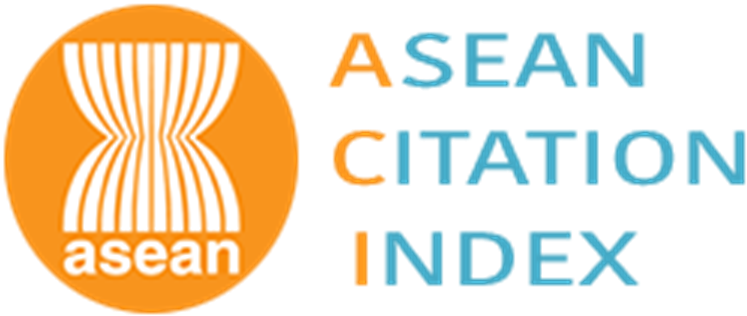Developing and Evaluating Thai Technical Teacher Training Courses Based on German Technical Vocational Education and Training: A Path towards Global Competitiveness
Abstract
เทคโนโลยีช่วยส่งเสริมให้เกิดการเรียนรู้ด้วยตนเองและการเรียนรู้ในรูปแบบต่าง ๆ เกิดขึ้นได้ อาชีวศึกษามีส่วนช่วยส่งเสริมกลุ่มแรงงานเฉพาะทางผ่านทางสถาบันการศึกษาต่าง ๆ ความสามารถในการแข่งขันในระดับสากลจำเป็นต้องมีการพัฒนาสมรรถนะของครูเทคนิคอาชีวศึกษา งานวิจัยนี้มีวัตถุประสงค์เพื่อจัดทำและประเมินหลักสูตรการฝึกอบรมครูเทคนิคอาชีวศึกษาตามเทคนิคการศึกษาของเยอรมัน เพื่อเสริมสร้างสมรรถนะการเรียนการสอนระดับชาติสำหรับการแข่งขันระดับนานาชาติ การศึกษานี้เป็นการพัฒนาและทดสอบโปรแกรมการฝึกสอนโดยผู้เชี่ยวชาญตามสมรรถนะสำหรับครูเทคนิคอาชีวศึกษา กระบวนการศึกษาครอบคลุมถึงการระบุความต้องการและเป้าหมาย การออกแบบและจัดโครงสร้างหลักสูตรการฝึกอบรม การพัฒนาหลักสูตร การวางแผนการฝึกอบรม และการวิเคราะห์ผลลัพธ์ ประสบการณ์ในอุตสาหกรรมและความเชี่ยวชาญเฉพาะด้าน การติดตามเทคโนโลยีเป็นสิ่งสำคัญสำหรับครูด้านเทคนิค ในงานวิจัยนี้ผู้เชี่ยวชาญ 5 ท่าน ได้ประเมินเนื้อหา ข้อสอบ และวัตถุประสงค์เชิงพฤติกรรมของหลักสูตรโดยใช้ IOC ซึ่งได้ผลว่าหลักสูตรมีความสอดคล้องกัน ในส่วนการประเมินประสิทธิผลการฝึกอบรม ผู้เข่าร่วมที่เป็นผู้บริหารและครูเทคนิคอาชีวศึกษาจำนวน 16 ท่าน ได้ทำแบบทดสอบก่อนและหลัง โดยพบว่าคะแนนการทดสอบวัดความรู้ เพิ่มจาก 29.38 เป็น 87.50 โดยผลการวิเคราะห์ t-test พบว่ามีค่า p-value เท่ากับ 0.00 ซึ่งยืนยันว่าการฝึกอบรมทำให้ความรู้เพิ่มขึ้นอย่างมีนัยสำคัญ การวิจัยการเรียนรู้แบบผสมผสานในอนาคตต้องกำหนดวัตถุประสงค์การเรียนรู้ กำหนดสัดส่วนที่เหมาะสมของการเรียนการสอนแบบออนไลน์และแบบเผชิญหน้าและกำหนดความสำคัญของการใช้ระบบการจัดการเรียนรู้ จัดให้มีกิจกรรมการเรียนรู้ที่หลากหลาย และให้ทรัพยากรมากมายแก่นักเรียน ครูและนักเรียนได้รับการสนับสนุนให้แสดงความคิดเห็นและสะท้อนการเรียนรู้ของพวกเขา มีการหารือเกี่ยวกับการประเมินนักเรียนที่มีความหมายและสาขาการเรียนรู้เพื่อปรับปรุงหลักสูตรในอนาคต
Technology supports self-directed learning and offers an array of technology-enhanced learning methods. Technical-vocational education and training (TVET) are vital in enhancing skill development opportunities of specialized workforce. Competency development of TVET teachers plays a crucial role in enhancing their global competitiveness. The objective of this study is to develop and assess German-based technical and vocational teacher training courses in order to enhance teacher competencies in effective teaching. Improving TVET teachers' professional competencies is important for them to become better-prepared for global competitiveness. This study involves the development and testing of a competency-based coaching program for TVET teachers. The study process encompasses identifying needs and goals, designing, and structuring the training course, developing the curriculum, planning training sessions, and analyzing results. Industry experience, subject-specific expertise, and the ability to keep up with technological progress are essential for TVET teachers. In the research, five experts evaluated the course content, tests, and behavioral objectives using IOC which reported congruence of curriculum evaluation. To assess the effectiveness of the training program, sixteen school administrators and TVET teacher participants completed the pretest prior to engaging in the training program, then they completed the posttest of knowledge acquisition after training. As results, the posttest scores sharply increased from 29.38 to 87.50, (p < 0.001), confirming that teachers' knowledge can be enhanced significantly through intervention. Regarding the implications for future studies on blended learning that combines classroom and online education, it is especially important to clearly define learning objectives, to determine the appropriate proportion of online and face-to-face instruction, to indicate the importance of learning management systems, to provide a variety of learning activities, and to teach students to use multiple resources that could help them learn better. In addition, students should be encouraged to express their opinions and reflect on their own learning. Likewise, teachers should critically reflect on their pedagogical experiences for further development. Last but not least, a meaningful assessment of student learning alongside the curriculum assessment must be brought into account for the development of a future-ready curriculum.
Keywords
[1] J. N. Warnock and M. J. Mohammadi-Aragh, “Case study: use of problem-based learning to develop students' technical and professional skills,” European Journal of Engineering Education, vol. 41, no. 2, pp. 142–153, 2016.
[2] N. Prachyanun, C. Pinanta, and S. Thapanee, “The project-based learning management process for vocational and technical education,” Higher Education Studies, vol. 11, no. 2, pp. 20–29, 2021.
[3] G. halasz and A. Michel, “Key Competences in Europe: interpretation, policy formulation and implementation,” European Journal of Education, vol. 46, no. 3, pp. 289–306, 2011.
[4] K. Hauge and P. Wan, “Teachers’ collective professional development in school: A review study,” Cogent Education, vol. 6, no. 1, pp. 1–20, 2019.
[5] P. Blumenthal and U. Grothus, “Developing global competence in engineering students: U.S. and German Approaches,” The Online Journal for Global Engineering Education, vol. 3, no. 2, pp. 1–12, 2008.
[6] T. Rucker, “Teaching and the claim of bildung: The view from general didactics,” Studies in Philosophy and Education, vol. 39, pp. 51–69, 2019.
[7] German-Thai Chamber of Commerce (2021, March). GTCC Annual Report 2020. [Online]. Available: https://issuu.com/germanthaichamber/ docs/gtcc_annual_report_2020
[8] S. Theerasak and K. Buratin, “Comparing employability skills of technical and vocational education students of Thailand and Malaysia: A case study of international industrial workintegrated learning,” Journal of Technical Education and Training, vol. 11 no. 3, pp. 94–109, 2019.
[9] P. Meesuk, B. Sramoon and A. Wongrugsa, “Classroom action research-based instruction: The sustainable teacher professional development strategy,” Journal of Teacher Education for Sustainability, vol. 22, no. 1, pp. 98–110, 2020
[10] D. Präsident. (2011, July 29). Ordinance on Vocational Education and Training in the Occupation of Mechatronics Fitter. [Online]. Available: https://www.govet.international/ dokumente/pdf/5_govet_mechatroniker_ausbildungsrahmenplan_ en.pdf
DOI: 10.14416/j.kmutnb.2024.10.010
ISSN: 2985-2145





